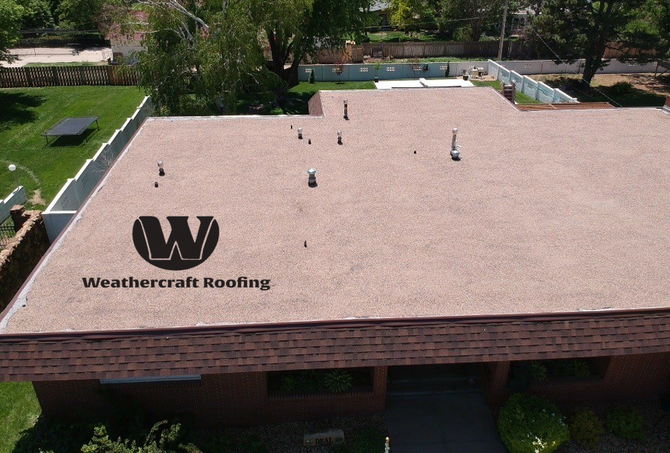The roof of your commercial property plays a critical role in its protection and energy efficiency. A well-built roof safeguards your building from weather damage, reduces maintenance costs, and can even cut down on energy expenses. This guide will help you understand the best roofing materials for your business and why quality roofing matters for the long term.
How to Identify Your Commercial Roofing Needs
Commercial roofs have unique requirements compared to residential roofs. Factors such as climate, building type, and business operations play a major role in determining the best roofing system. Whether you’re managing a warehouse, office, or retail space, identifying your specific needs will help you select the right roof for your property.
Top Commercial Roofing Materials
When selecting a roofing material for your commercial property, you have several excellent choices. Each material has its own set of benefits, tailored to different needs and budgets.
Option 1: Metal Roofing
Metal roofing is highly favored for commercial properties because of its long-lasting durability and energy-saving features. Available in materials such as steel or aluminum, metal roofs can handle extreme weather and provide excellent leak protection. Plus, their reflective surface can reduce cooling costs during the hotter months.
2. Flat Roofs
Many commercial properties use flat roofs due to their cost-efficiency and easy installation. Flat roofs are especially well-suited for modern buildings, with materials like TPO, EPDM, and PVC offering excellent waterproofing and insulation. Regular maintenance and good drainage practices help extend their lifespan.
3. Shingle Roofing
While less common for large commercial buildings, shingle roofing can be an excellent choice for smaller commercial structures or buildings that require a more traditional aesthetic. Asphalt shingles are affordable, easy to install, and available in a variety of styles and colors, though they may not offer the same long-term durability as metal or flat roofs.
Roof Installation: Best Practices and Maintenance Tips
Once the roofing material is chosen, it’s time for installation. Hiring a qualified and licensed contractor guarantees proper installation, which is vital for preventing leaks and ensuring your roof’s longevity.
Ongoing maintenance is critical to keeping your roof in top shape. Regular inspections—especially after severe weather—are recommended. Check for any damage like missing shingles, cracks, or water pooling. Clean gutters and remove debris regularly to prevent potential long-term issues.

The Importance of Investing in High-Quality Roofing
Your roof is a long-term investment. A quality roofing system provides protection against leaks, which could cause expensive damage to your building and inventory. It also enhances energy efficiency, making your property more environmentally friendly and reducing operating costs. Ultimately, a well-maintained roof can improve your building's value and ensure that you’re not facing costly repairs down the road.
Final Thoughts: Selecting the Best Commercial Roofer
Selecting the right roofing contractor is crucial to ensuring your roof is installed correctly. Choose a licensed and experienced professional who specializes in commercial properties and can help you choose the best material. A good roofer will also assist you with the installation and ongoing maintenance to keep your roof in optimal condition.
Thinking about upgrading your commercial roof? Get in touch with us today for a free consultation, and let us guide you through the best roofing options for your property.
#CommercialRoofing #RoofingMaterials #BusinessProtection #MetalRoofing #FlatRoofing #RoofInstallation #EnergyEfficiency #RoofMaintenance